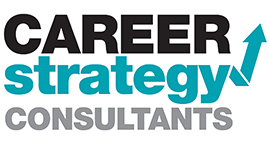Top Tips for Hiring Managers


The single most important factor in recruiting and retaining top talent is having Hiring Managers successfully connect with potential hires. The best way to do this is by understanding the key drivers of employee attraction/retention within your organization, understanding the needs of your diverse workforce, and engaging with your employees both personally and professionally. Hiring Managers should use these tips when building a career strategy that will attract, engage, and retain top talent.
Hiring Managers are the most responsible individuals within an organization for attracting, engaging, and retaining high-quality employees. This is because Managers have the final say on who will be hired in a given role and will play a key role in hiring employees for their particular function.
To hire new talent successfully hiring Managers must have a clear understanding of what motivates them, have knowledge of their individual needs and wants at work, and be well-prepared to engage with potential hires both personally and professionally. Hiring Managers should use these tips when building a career strategy that will attract, engage, and retain top talent within your organization.
What drives people to work at your company?
Employers who are successful at attracting and retaining top talent must enable their employees to have a fulfilling work experience that balances their physical, emotional, and mental needs. This balance is achieved by providing the following:
A sense of purpose
The feeling that someone is working on behalf of something bigger than themselves. A way for everyone to make a difference in the world. The ability to feel like they are working on something of value. A purpose that is bigger than yourself – you will be working at a job where your efforts will make an impact on the world or improve another’s life and possibly even save it.
A sense of belonging
The feeling that you are an important member of an important group. A sense of your place in a social hierarchy. Belonging to a community, somewhere you fit in where you are accepted for who you are. A feeling of acceptance and belonging at work – that each person is viewed as special and important in the organization.
A sense of esteem
The belief that we are competent and capable – that our actions lead to achievement. The belief that we are respected by others or we have respect for others (guilt-free accomplishments). Being able to feel confident in the things you do. A sense of achievement and purpose – the feeling that you are doing something worthwhile or worthwhile enough to be rewarded for it.
A sense of growth
The feeling that your experiences and actions are constantly moving you forward, growing and developing as a person – both in your personal and professional life. The belief that you’re learning something new or gaining more knowledge every day. A sense of growth – being able to develop as an employee through opportunities for training, development, etc., and being assisted in growing personally as well.

Once a hiring Manager has established what motivates their workforce they can begin to cultivate relationships with these individuals by providing them with the opportunity or motivation to achieve their career goals within the organization. To get their employees started on these key journey goals a new hire should be given the following:
A clear indication of what the role entails and what it will look like when they are complete. An indication of how their work will make an impact on the world – using examples such as “impact on society” or “positive social change”. An indication that they are working on something important and worthwhile – by example “saving lives”. Incentives to show achievement – i.e. a raise, bonus, or promotion at some point in time.
A clear scope of work you are looking for. Knowing what is expected of you can help you make quick decisions on which candidates to pursue. For example, some hiring managers will start with general questions such as “Tell me about yourself”. Others will start with specific questions such as “What are your career goals over the next 10 years?”
Understanding what careers people have chosen before they make the leap into their dream job can provide Hiring Managers with a lot of insight into what is important and unique about their potential employees.

To help determine what motivates candidates hiring Managers should ask questions such as: “What is your ideal job?” or “What jobs have you had before?”. Once these questions have been asked the hiring Manager can take notes on what motivates the candidate’s decision-making process and determine where there is alignment in their ideal work environment and the organization they are applying to work for.
Once Hiring Managers have an understanding of what motivates their current employees and candidates the next step is to focus on communicating the specific career goals for their organization using these keywords: “impact” and “worthwhile”.
A sense of impact is present when employees have a purpose, a belief that they are doing something worthwhile, and a feeling that they are making an important contribution to the world. A sense of impact is certainly present when a job has meaning. Worthwhile work provides any worker with opportunities for achievement along with opportunities for growth.
To demonstrate Impact candidates are often given opportunities to “Feel like they are making an important contribution to their company” or “Making an impact on society”. A sense of Worthwhile work provides candidates with opportunities to achieve, grow and develop.

It is very important that hiring Managers have clarity on the impact they are making or want to make in the world. It is equally as important for employees to feel like their contributions are worthwhile and meaningful. When Hiring Managers provide their employees with meaningful work, their employees will be more satisfied, committed, and productive.
Where there is Impact and Worthwhile work, people will be proud of what they do and will often be motivated to go above and beyond their job requirements – this is the type of workforce hiring Managers want to work with.
Finally, Focus (the ability to concentrate on what’s important) is a skill that can be learned over time – it is not something that you are either born with or without. This means that you can train yourself and your employees on how to focus on your key journey goals as well as the goals for your organization. Remember, Focus also requires emotional energy – so if an employee feels ill-equipped to handle the task ahead, their brain does not use energy in trying to accomplish it.

More Than Just Staffing
For Employers
For Individuals
